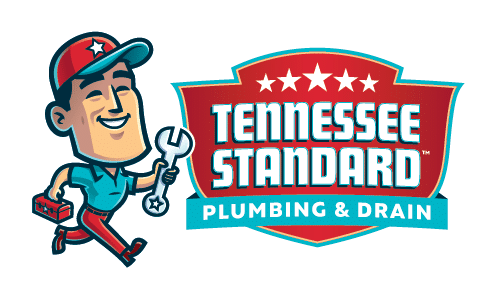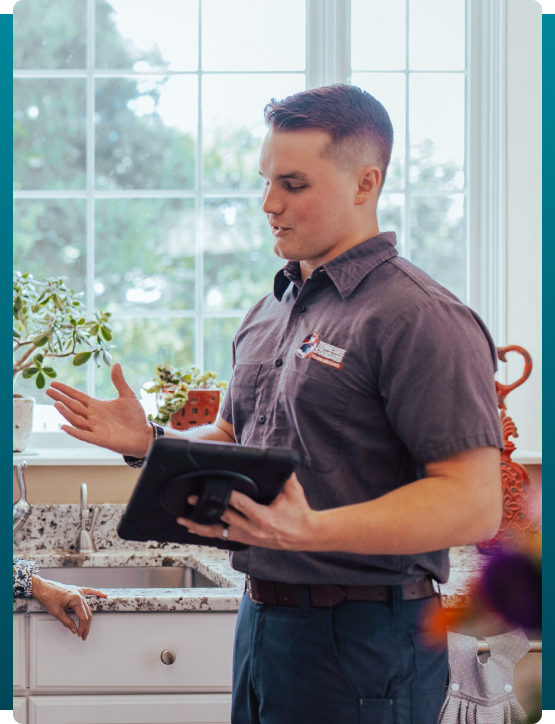Are you having issues with some or all of the pipes in your home producing a whistling sound when you use your plumbing? This issue is somewhat common and can happen for several reasons. While it often isn’t a serious problem, it can sometimes be a sign that you need to have a section or have your home’s pipes replaced. We’ll look at why the whistling sound happens, what issues can cause it and what you can do to overcome them.
Why Pipes Sometimes Whistle
A whistling sound from your pipes indicates a flow restriction. Something is causing the water to flow through a smaller space than it normally should. Because of pressure, the restriction essentially causes the water to flow through the opening with more force and results in it producing a whistling sound. With that in mind, here are the different issues that can cause the water flow in a plumbing system to be restricted. The solution is often contacting a plumber who can look at your plumbing and give you a fair assessment.
Worn-out or Clogged Valve
If the whistling sound only occurs when using one faucet or shower, it often means there is an issue with either the seal valve inside the faucet or the shower or a shut-off valve. Kitchen and bathroom faucets typically have three separate valves. There are shut-off valves on both the cold and hot water lines as well as a seal valve inside the faucet.
As the seal valve inside the faucet wears out, it, sometimes, ends up not opening fully when you turn the water on. Any of the valves can also get clogged with mineral deposits that can prevent them from opening all the way. No matter what, the end result is that the water must flow through a smaller opening than usual when the valve is fully open.
In certain cases, a plumber has the ability to resolve a clogged valve issue by simply removing the valve and thoroughly cleaning it. If the seal valve is worn out, they’ll need to take apart the faucet and repair it. Depending on the age and condition of the faucet, sometimes, you’re better off just replacing the faucet.
If you hear a whistling sound when using any plumbing fixture, the issue is usually related to either the shut-off valve or the pressure-regulating valve on your main water line. Here, the solution is again to have a plumber clean, repair or replace whichever valve isn’t working as it should.
Clogged Faucet Aerator
Most kitchen and bathroom faucets have an aerator, which is just a screen that is screwed onto the end of the faucet. The purpose of a faucet aerator is to control the stream of water so that it flows evenly and also to reduce the flow so that the faucet doesn’t waste water. Over time, the screen ends up getting clogged with mineral deposits and silt. A clogged aerator can also end up restricting the water flow to where the faucet makes a whistling sound.
Checking and cleaning a clogged aerator is usually something you can do yourself. However, you’ll need to use pliers to unscrew the aerator from the end of the faucet. If you’re not careful, you could end up damaging or even breaking the faucet. Soak the aerator in vinegar for 20 minutes to loosen mineral deposits, and then, scrub with a soft-bristled brush. We also offer drain service, too!
Aging Plumbing
Whistling sounds are quite common in older homes that haven’t had their original plumbing updated and all the water lines replaced. In the past, it was common to use galvanized steel or even lead pipes for the water lines in a home. Copper pipes are resistant to corrosion, but other metal pipes do rust and corrode. As rust builds up inside old pipes, it leads to the interior diameter of the pipe shrinking and causing a restriction in water flow. Re-pipe your home with copper or PEX if you have galvanized or lead pipes.
Another issue with older plumbing systems is that mineral deposits also build up inside the water lines and end up restricting the water flow. Here, the only effective solution is again to replace the water lines. If you have hard water in your home, it’s highly recommended that you install a water softener. By doing so, you can effectively prevent the accumulation of mineral deposits in your pipes, plumbing fixtures, and appliances.
What Causes Pipes To Make a Banging Sound?
Another common issue in some plumbing systems is that some pipes will make a loud banging sound when water flows through them. This issue is commonly referred to as a water hammer, and it happens because of vibrations that cause pipes to knock against wall studs and floor joists. When you shut the water off at any fixture, the water flowing through the pipe to that fixture abruptly stops and has to change directions when it hits the closed fixture. This sudden stop and change of direction leads to the pipe shuddering and vibrating.
Water pressure always causes pipes to vibrate somewhat when you shut the water off, but you normally won’t notice or hear the vibrations. If you hear a water hammer, it could mean that a pipe has come loose and is no longer secured to the joist or stud. In this case, a plumber will need to access the pipe through the wall or ceiling and re-tighten the existing fasteners or add more brackets to ensure it’s no longer loose.
If you hear a knocking or banging sound when you turn off any fixture in your house, it’s most likely that your water pressure is too high. High water pressure results in water flowing with more force, which then increases the amount that a pipe shakes, shudders and vibrates when the water gets shut off.
More than just being annoying, the water hammer can also create major issues with leaks down the road. The more a pipe vibrates and knocks against a stud or joist, the greater the chance there is of a hole developing or a connection coming loose. Taking proactive measures to ensure the proper functioning of your plumbing system is essential, which is why it is advisable to have it inspected and promptly fix any issues that may arise.
As the most trusted plumbing company in the Greater Knoxville area, you can count on Tennessee Standard Plumbing for all of your repair and installation needs. We offer flexible scheduling and will always arrive at the appointed time. We’ll also send you a message 30 minutes before with a picture of which one of our licensed plumbers is on their way. After evaluating your plumbing, we’ll also give you a range of options so that you’re not forced to pay for something that’s out of your budget. No matter what plumbing service you need, contact us today to schedule an inspection or service call.




